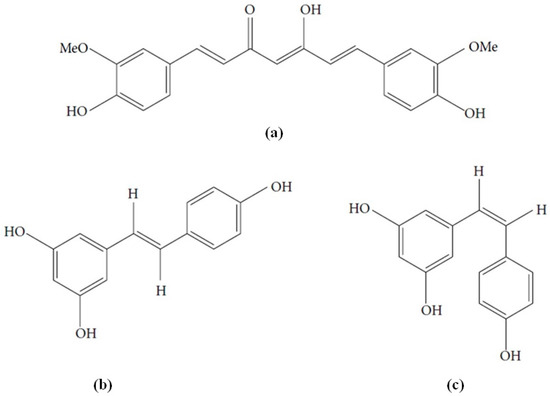Mazzanti, G.; Di Giacomo, S. Curcumin and Resveratrol in the Management of Cognitive Disorders: What is the Clinical Evidence? Molecules 2016, 21, 1243.
Abstract
A growing body of in vitro and in vivo evidences shows a possible role of polyphenols in counteracting neurodegeneration: curcumin and resveratrol are attractive substances in this regard. In fact, epidemiological studies highlight a neuroprotective effect of turmeric (rhizome of Curcuma longa L.), the main source of curcumin. Moreover, the consumption of red wine, the main source of resveratrol, has been related to a lower risk of developing dementia. In this review, we analyzed the published clinical trials investigating curcumin and resveratrol in the prevention or treatment of cognitive disorders. The ongoing studies were also described, in order to give an overview of the current search on this topic. The results of published trials (five for curcumin, six for resveratrol) are disappointing and do not allow to draw conclusions about the therapeutic or neuroprotective potential of curcumin and resveratrol. These compounds, being capable of interfering with several processes implicated in the early stages of dementia, could be useful in preventing or in slowing down the pathology. To this aim, an early diagnosis using peripheral biomarkers becomes necessary. Furthermore, the potential preventive activity of curcumin and resveratrol should be evaluated in long-term exposure clinical trials, using preparations with high bioavailability and that are well standardized.
Keywords: polyphenols; curcumin; turmeric; resveratrol; grape wine; dementia; Alzheimer; cognitive disorders;clinical trials

View Full-Text | Download PDF
Nenhum comentário:
Postar um comentário